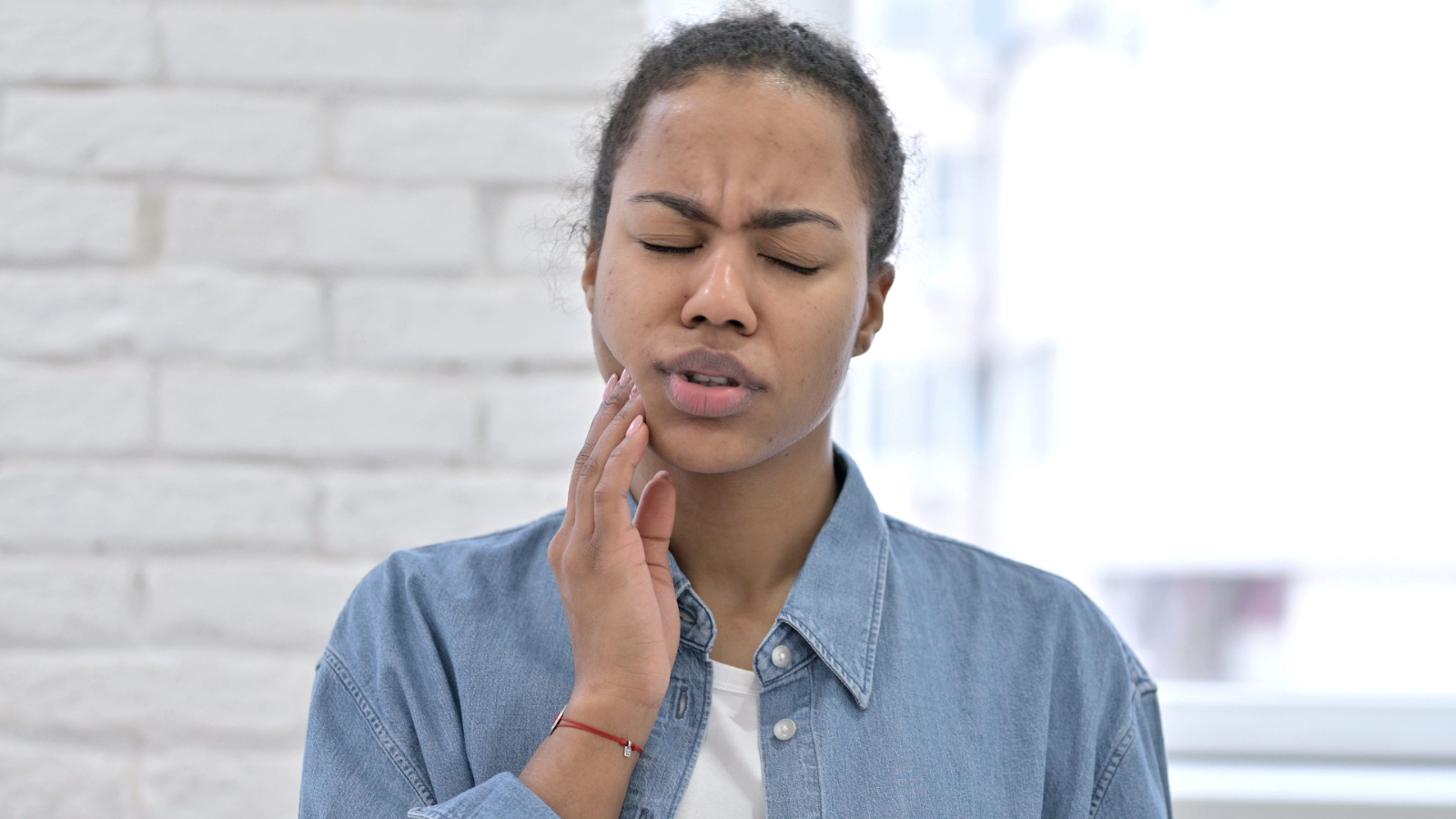Most of us have suffered from a toothache at one time or another, but what does it mean when all of your teeth hurt? Tooth pain is nothing to dismiss. It can severely affect your quality of life, making eating difficult and causing great discomfort. Of course, the best thing to do is see your dentist for advice, diagnosis, or treatment. But what can cause all of your teeth to become painful? Let’s take a deep dive into common causes of tooth discomfort and what you can do to ease the symptoms until you can get to your dentist.
What is causing all my teeth to ache?
A single toothache can cause several of your teeth to hurt, but there are also conditions that can cause pain in all of your teeth at the same time.
Gum Disease
Almost half of adults have gingivitis (early-stage gum disease) or periodontal disease (advanced gum disease). When you have periodontal disease, the gums will pull away from your teeth and allow bacteria to become trapped under the gumline. This can lead to infection, sensitive teeth, bone loss underneath the gums, and tooth loss. It can also make your teeth shift in your mouth, which can lead to aching in your jaw due to a misaligned bite. Any of these complications of periodontal disease can cause tooth pain in one or more of your teeth.
Tooth Grinding
Bruxism, the technical term for teeth grinding or clenching, is primarily a response to stress and anxiety. It often happens in your sleep, and you may not even be aware that you’re doing it. When you grind your teeth, you can wear down your tooth enamel, and could even cause your teeth to crack or break. If you aren’t able to break the cycle of bruxism, you can wear away your tooth enamel, exposing the dentin.
Dentin are tiny tubes that lead down to the root of your tooth. Tooth sensitivity occurs when hot, cold, or sweet stimuli enter into those tubes, aggravating the root. This is why your teeth feel pain when you suffer from sensitivity. Not only that, the pressure of continued clenching and grinding can cause jaw pain, headaches, and muscle tension in your face and neck. Any of these symptoms can make it seem like your entire mouth is aching.
Sinusitis
Your sinuses are located behind your cheekbones and extend up into your forehead. If these air-filled cavities become inflamed, you can suffer from sinusitis. Sinusitis can manifest itself as pressure or pain in your jaw that can radiate into your teeth. If the inflammation goes untreated, you may develop a sinus infection, which can also cause problems in the mouth. Sinus infections rarely happen suddenly and while easily treated, they need to be diagnosed by a professional.
TMJ
Also called Temporomandibular Joint Syndrome, TMJ is a condition that affects the joint that connects the jaw to your skull. TMJ pain can happen suddenly and be felt in the teeth, jaw, ear, or temple. If you have TMJ, you might feel a click or a pop when you open or close your mouth. TMJ causes pain in the teeth or gums, headaches, and facial swelling.
Cavities and Abscesses
There’s nothing that trips up your oral health more than a cavity or an abscess. Tooth decay can create a cavity to form in your tooth, and if you don’t receive a filling treatment from your dentist in a reasonable amount of time, it can progress into a much more serious dental problem, like an abscess. Abscesses are serious infections that threaten not only your oral health but your overall health as well. If you suspect that you have an abscess, it’s vital to seek medical advice and treatment from your dentist right away.
How To Make Your Teeth Stop Hurting
When you have pain in your teeth, the first thing you want to do is make it go away. Whether it comes from bruxism, tooth decay, or another related condition, it’s best to make an appointment with your dentist to pinpoint the reason. In the meantime, there are ways you can treat oral pain at home. If your teeth are sensitive to hot or cold, purchasing a toothpaste that contains potassium nitrate and fluoride can help protect your enamel and repair the dentin. Mild teeth pain can be relieved by taking over-the-counter pain medications. If the ache does not go away, it’s best to get to your dentist as soon as possible for medical advice on how you can feel better quickly.
We have multiple offices in greater Minnesota and around the Twin Cities. If you’re in the area, schedule your appointment today!
